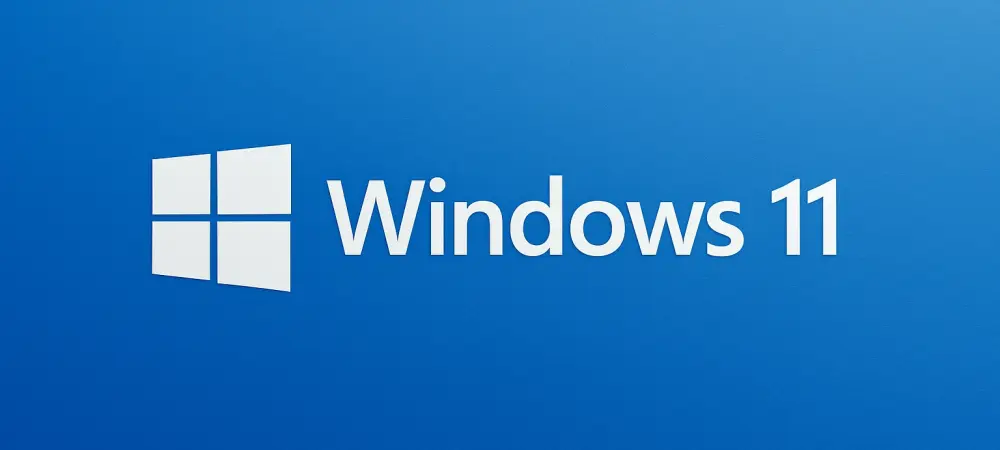The latest evolution in artificial intelligence has seen its integration into Windows 11, a development reshaping user interaction with technology by turning it into a generative AI-driven operating system through a robust model called Mu, which operates seamlessly on users’ devices without requiring an internet connection. This shift represents a significant technological milestone and lays the groundwork for a new dimension in user experience by facilitating on-device real-time interactions with software.
Understanding the AI Evolution in Windows 11
AI’s integration into Windows 11 is characterized by the introduction of the Mu model, a foundational stride in the operating system’s AI capabilities. This model can process natural language queries directly within the OS using the advanced neural processing units provided by Intel, AMD, and Qualcomm embedded in devices preloaded with Windows 11. As technology evolves, such players lead the charge in embedding key AI functionalities that promise to make computing more intuitive and responsive.
Generative AI, spearheaded by models like Mu, is at the forefront of this shift, influencing major advancements across the software landscape. Through strategic partnerships and technological innovation, companies such as Microsoft are infusing AI at a core level, enhancing products not just in complexity but also in user accessibility and functionality. By including AI in both Windows 11 and Microsoft 365, Microsoft is paving a path toward smarter and more efficient computing environments that cater to both professional and personal users alike, setting a benchmark for future developments.
Assessing the Potential Benefits of AI in Windows 11
Enhancement of User Interface and Experience
The user interface is undergoing a remarkable transformation with the influence of AI technologies. Investment in AI-driven interfaces, like local AI agents, heightens user interaction by providing contextually aware and personalized user experiences. Windows 11 users can engage with their systems in a more intuitive manner, as AI interprets user intent and delivers tailored support based on real-time needs and historical interactions.
Emerging technologies are taking digital interactions a step further by simplifying complex operations and facilitating smoother, more user-friendly navigation. This core integration ensures that users can not only access information faster but also benefit from enhanced predictive analytics, improving engagement through the anticipation of user needs and swift customization of tools and applications.
Efficiency and Performance Gains
The adoption of AI in Windows 11 promises notable efficiency and performance improvements, as evidenced by market data showing an increase in processing speeds and reduced computational demands. By leveraging models like Mu, which have been optimized for device-specific constraints, the operating system can now offer more flexible and swift processing, fostering an environment of enhanced productivity. These enhancements are expected to drive forward innovative performance gains, reducing the burden on system resources significantly. Users benefit from improved battery life, a significant reduction in AI computing cycles, and optimized workflows, opening doors to a more sustainable and streamlined computing experience that redefines what modern technology can achieve.
Challenges and Considerations
AI’s incorporation presents challenges, primarily in engineering the technology to circumvent existing hardware limitations while maintaining seamless functionality. To address these challenges, fine-tuning AI models for on-device use has been prioritized, ensuring that devices operate within parameters without compromising performance or reliability.
Another significant obstacle is achieving seamless integration across varying devices and environments. Considerations focus on developing models that are hardware-agnostic yet powerful enough to deliver consistent results. By focusing on adaptable architectures and incrementally improving AI frameworks, solutions are being formulated to overcome these challenges, paving the way for improved AI technologies in forthcoming updates of Windows 11.
Navigating the Regulatory and Security Landscape
The current regulatory environment influences AI deployment within Windows 11 as data protection and compliance emerge as significant focal points. As AI features become more ingrained into the software, ensuring that user data remains secure is paramount, encouraging companies like Microsoft to adhere to comprehensive security measures.
Regulatory changes are guiding the ethical development and implementation of AI technologies, shaping the operating system’s capabilities in compliance and security. Observing these standards ensures the Microsoft ecosystem maintains trustworthiness while upholding the rights and privacy of end-users. Such measures will continue to evolve, forming an essential component of effective AI integration strategies.
Future Directions and Innovations
As the AI landscape continues to evolve, future operating system developments will likely focus on further enhancing AI capabilities, driven by innovations that seek to improve user interaction across all computing platforms. Disruptors like advanced machine learning algorithms and AI-driven analytics tools signify potential shifts in how operating systems interact with users.
Exploring future dynamics will involve adapting to emerging trends and user preferences, which are continually evolving to demand more intuitive and responsive technology. Ongoing innovations promise to shape the trajectory of AI development, creating a more interconnected and intelligent world where technology aligns closely with user expectations.
Conclusion and Strategic Recommendations
AI’s integration into Windows 11 has already begun to transform user experiences, providing a blend of functionality, efficiency, and personalization unprecedented in prior operating systems. These advances have demonstrated the potential for a significant shift in how users engage with technology, promising innovations that enhance both personal and professional user interfaces.
For users and developers, staying informed on AI capabilities offers insights into optimizing their interaction with Windows 11, creating opportunities for growth and development. By embracing AI’s potential, stakeholders can leverage these technologies to improve user experiences and future-proof their interaction with emerging computing trends. As AI continues to unfold within the Windows ecosystem, focusing on harnessing its full potential will remain critical to achieving enhanced technological landscapes.

